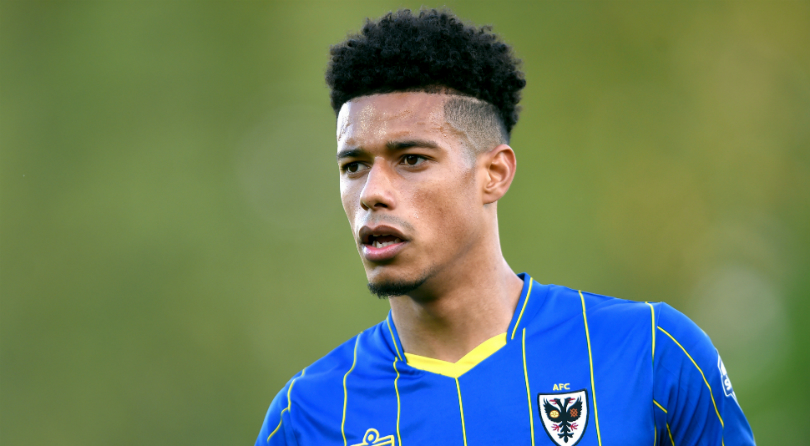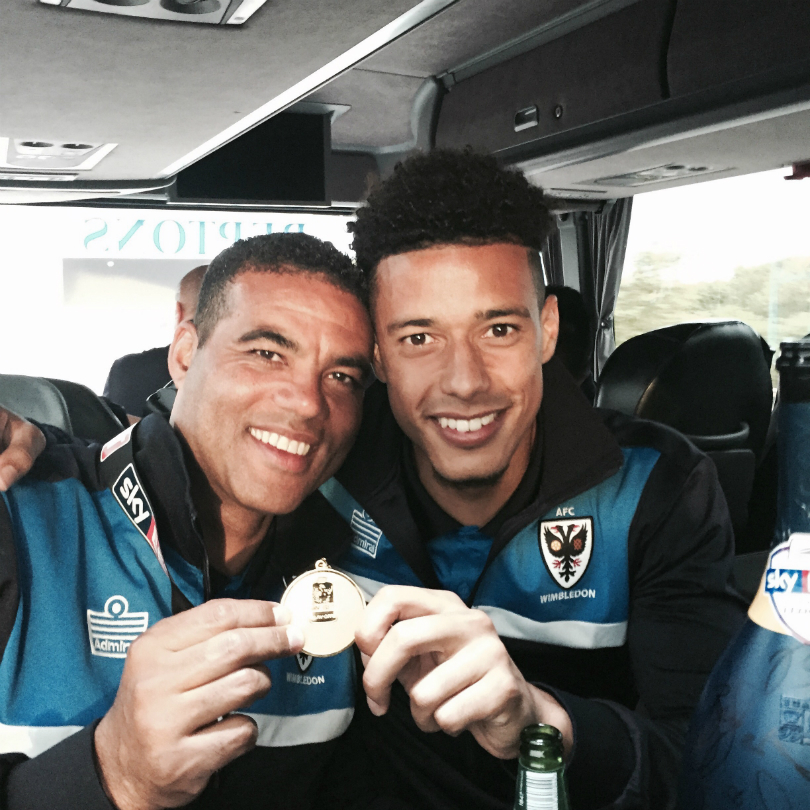How an ego expert solved a striker's woes
AFC Wimbledon forward Lyle Taylor worked with sports psychologist Steven Sylvester in a bid to resolve his temperament and unlock his full potential

When AFC Wimbledon boss Neal Ardley hit a brick wall in his attempts to get the best out of one of his star players last season, he turned to a sports psychologist for help.
Steven Sylvester – a mental expert who was part of the interview panel who recruited the Dons boss in 2012 before later working with the staff, squad and players on a contractual basis - was the man whose expertise were sought.
Ardley had grown frustrated in his attempts to unlock the full potential of striker Lyle Taylor, a 27-year-old forward who had already racked up 13 clubs before joining the Dons in 2015.
Sylvester’s area of expertise is ego. His aim with clients is to change their focus to serving a wider purpose, such as a player’s team-mates and the goals of the club, rather than personal success.
“He recognised that Taylor had real ability but wasn’t performing consistently,” says Sylvester. “My first step was to get to know Lyle as a person, that way he was comfortable speaking to me in different environments.”
He began to slowly shape the striker’s mindset with a series of enlightening conversations. “We’d speak at the training ground or over the phone after training and immediately resolve issues we felt were holding him back,” he adds.

“Alongside the manager, I spoke to him about the importance of being a team player rather than just scoring and making assists and stressed that would make him a better player.”
Get FourFourTwo Newsletter
The best features, fun and footballing quizzes, straight to your inbox every week.
The simplicity of the message soon hit home. “He played out of position, in a wide role in some games, and started pressing and chasing back, which he’d never done previously.”
Taylor ended last season with 23 goals as Wimbledon won promotion to League One via the play-offs, while he has scored a further 14 this term. In an interview last year, the striker credited Sylvester for improving his game.
“Steve helps keep me stable and helps me to understand my role at the club and my wider contribution to the team and that is the biggest thing," he said. "I’m scoring goals and I’ve had a good season and an influence on the team, but the biggest thing for me is my development as a player and as a leader on the pitch, completely disregarding the football side of it.”
Psychology is still greeted with a degree of cynicism within the sport, but Sylvester believes the key to ensuring his methods succeed is how he approaches each individual.
“If you can add the psychology into conversations about football, where the player doesn’t really feel like they’re being talked at or lectured, then that helps in terms of getting message across.
“You have to take the fear away. The player needs to feel they can talk in a really relaxed way, as though they’re talking to an extended family member. That allows you to develop a deeper connection and engagement with a player.”
Related stories
